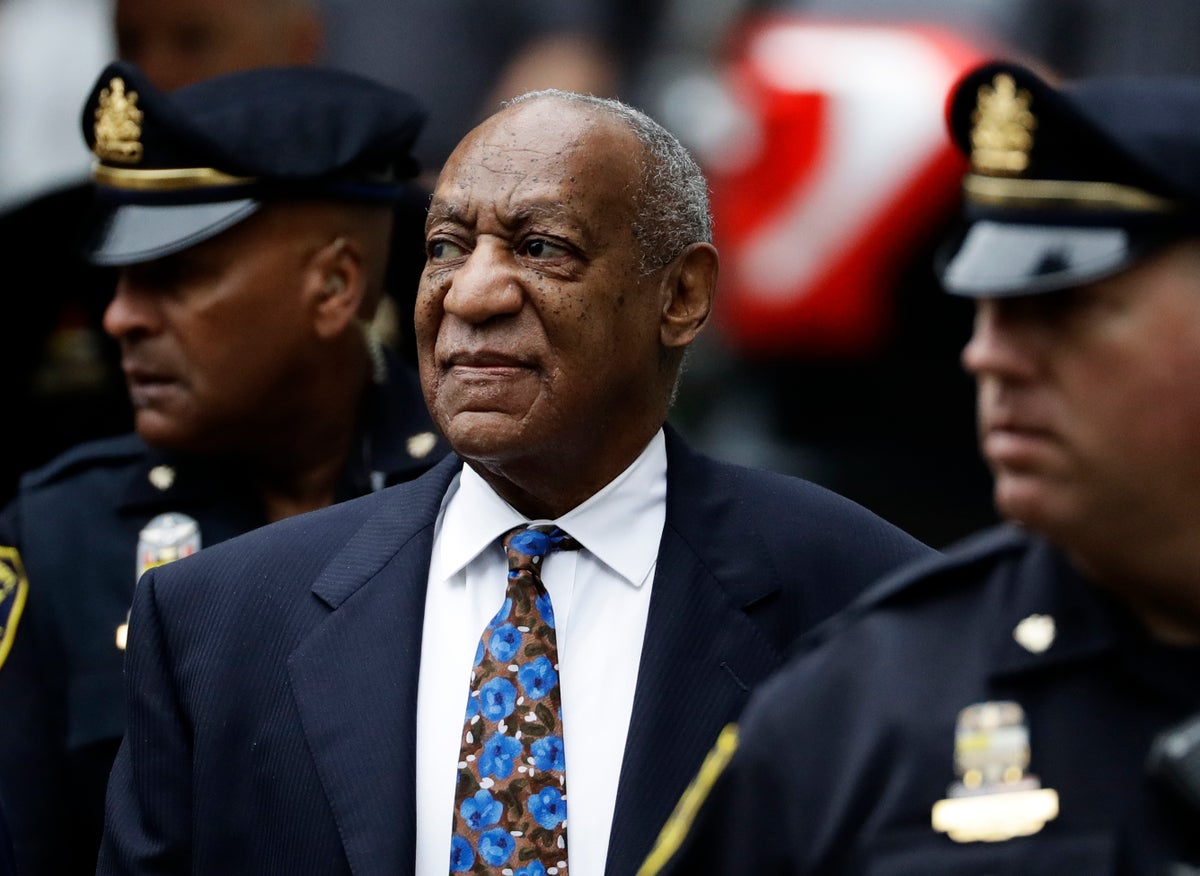
A group of women who accused Bill Cosby of sexual assault and were dismayed when he had his conviction overturned and left prison are trying again to seek justice in the courts, by urging states to give them more time to pursue civil damages.
More than a dozen women have sued the actor and comedian since his June 2021 release, including nine who brought cases Wednesday in Nevada, weeks after successfully lobbying to eliminate the statute of limitations for adult survivors in the state.
They join advocates who battled the Catholic Church, the Boy Scouts and other institutions in the debate over how long adult victims should have to file suit. That debate has intensified in the years since the #MeToo movement exploded onto the national scene, as some states extend deadlines for lawsuits, eliminate them altogether or enact so-called lookback laws establishing windows of a year or two to sue.
Nevada dropped its statute of limitations on May 31. In New York, lawmakers enacted a one-year window for anyone abused as an adult to sue that runs through November. And at least three states have abolished deadlines for people who were abused as children to sue.
Cosby has been accused of sexual misconduct by more than 60 women but was only arrested in one case given the shorter time frames that many states have for pursuing criminal charges.
“When Cosby was in jail, there was a sense of justice, even if it wasn’t for what individually happened to them,” said lawyer Jordan Rutsky of New York, who represents 13 Cosby accusers with suits pending in Nevada, New York and New Jersey.
“(Then) he was not only released but took the position that he was exonerated … and there was a feeling of justice being robbed,” Rutsky said. “And so when these laws have been changed, this has been a way for these women to finally seek the justice that has been denied them.”
Their efforts echo the fight to give child sex assault victims more time to come forward and decide whether or not to sue. More than 10,000 such suits were filed in New York alone during a two-year window.
One of the first to file during New York's one-year window for adult victims was writer E. Jean Carroll, whose claim against former President Donald Trump went to trial and recently resulted in a $5 million judgment in her favor.
Cosby, now 85, was freed from state prison the day the Pennsylvania Supreme Court threw out a jury verdict that found he had drugged and sexually assaulted a Temple University women's basketball staffer after inviting her to his home in 2004.
The decision stemmed from a long-running court fight over whether the prosecutor in the 2015 case was bound by his predecessor’s verbal promise in 2005 not to charge the comedian. Cosby — once admired for breaking racial barriers in the 1950s as a Black actor and later known as “America's dad” for his 1980s sitcom work — served nearly three years in prison of a three- to 10-year term.
Cosby spokesman Andrew Wyatt on Thursday blasted the Nevada accusers and their lawyers, in part for filing the lawsuit just before the June 19 Juneteenth holiday marking the emancipation of enslaved African Americans.
“It is disappointing to see that these alleged distractors are able to monetize false allegations against Mr. Cosby,” Wyatt said in a statement. “Mr. Cosby continues to invoke his constitutional rights by saying ‘Not Guilty’ and vehemently denying all of these alleged allegations waged against him.”
Cosby settled a 2005 lawsuit filed by Andrea Constand, the lone accuser in the later criminal trial, after giving a damaging deposition in 2006. His insurer settled a defamation lawsuit in Massachusetts involving seven women while he was in prison.
And the Nevada case follows a flurry of suits since his release, including one filed in California by a woman who said Cosby sexually abused her at the Playboy Mansion in 1975 when she was 16. That case settled for $500,000.
Plaintiff Lise-Lotte Lublin said she worked to change the law in her native Nevada so she too could have her day in court. She accuses Cosby of spiking her drink and raping her at a Las Vegas hotel in 1989. The new law, passed by unanimous vote, rescinds what had been a two-year deadline to sue.
“We prevailed through determination, by showing up and testifying, by pouring our hearts out to the senate and assembly and revealing our darkest moments of fear and anguish,” she said Thursday. “We all fought to ensure that survivors' voices could be heard (for) generations to come.”
Nevada Gov. Joe Lombardo, a Republican, said he hoped the new law would bring some closure to victims.
“It doesn’t fix it, but it helps,” Lombardo said, according to KVTN-TV. “With the passage of time people tend to forget the victim, but the victim never forgets."







